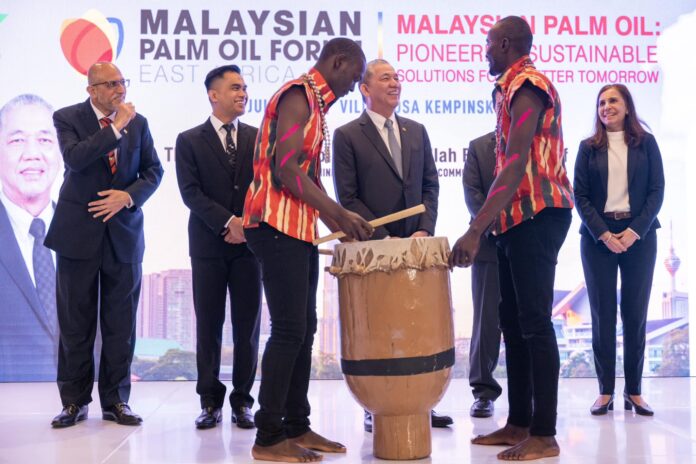PUTRAJAYA, July 4 — Deputy Prime Minister Datuk Seri Fadillah Yusof has called on Malaysian businesses to strengthen existing partnerships and explore new potentials for cooperation with their counterparts in Kenya, with a strong emphasis on sustainability as a core element of Malaysian palm oil.
Fadillah, who is also Plantation and Commodities Minister, said Kenya holds immense significance for the Malaysian palm oil industry as shown by the African nation’s emergence as the fifth largest destination for Malaysian palm oil exports, with a volume exceeding 763,000 tonnes in 2022.
“I believe there are huge opportunities for the private sector in our two countries to redefine business approaches (and) form partnerships and strategic alliances to explore new avenues for expanding the edible oil and palm oil business,” he said in his keynote address at the Malaysian Palm Oil Forum East Africa 2023 in Nairobi on Tuesday (July 4).
Fadillah said the forum, aimed at bringing together various stakeholders in the palm oil industry and fostering networking opportunities, acknowledges Kenya’s importance as a trade partner and significant user of palm oil.
He said the forum, themed “Pioneering Sustainable Solutions for A Better Tomorrow”, aligns with the current global scenario and emphasises the Malaysia-Kenya bilateral relationship, showcasing Malaysia’s role in providing affordable products to Africa while adhering to sustainability requirements for a better future.
In demonstrating Malaysia’s commitment to sustainability, he pointed out that Malaysia is one of the palm oil-producing countries in the world with its own sustainability certification standard known as the Malaysian Sustainable Palm Oil (MSPO).
“The MSPO standard has been developed under national and international rules for standard setting and reflects a unified code for best practices throughout the supply chain, from oil palm planting to palm oil processing,” he said.
The certification standard has been made mandatory since Jan 1, 2020, with the objective of ensuring Malaysian industries produce certified sustainable palm oil in line with the requirements of international consumers, he added.
Fadillah said there are numerous untapped opportunities in downstream higher value-added palm derivatives including oleochemicals, pharmaceuticals, processed foods, speciality products, and consumer brands, that could be leveraged and explored for joint investments.
He also told the forum that palm oil plays an important role in enhancing global food security through its significant contributions to the food industry.
“The affordability and availability of palm oil contribute to ensuring food accessibility for people across different socioeconomic backgrounds, especially in regions where alternative oil sources may be difficult to access or expensive,” he said.
Fadillah also took the opportunity to share Malaysia’s palm oil performance, saying that Malaysian palm oil and palm product exports were valued at US$29.7 billion in 2022, making it the highest-valued agricultural commodity exported. (US$1=RM4.65)
Malaysia stands as the world’s second-largest producer of palm oil, contributing 23 per cent of global supply last year.
“Our industry thrives due to robust institutional backing coupled with a comprehensive presence across the entire value chain,” he said, adding that the palm oil industry in Malaysia provides direct employment to over 450,000 smallholders.
















